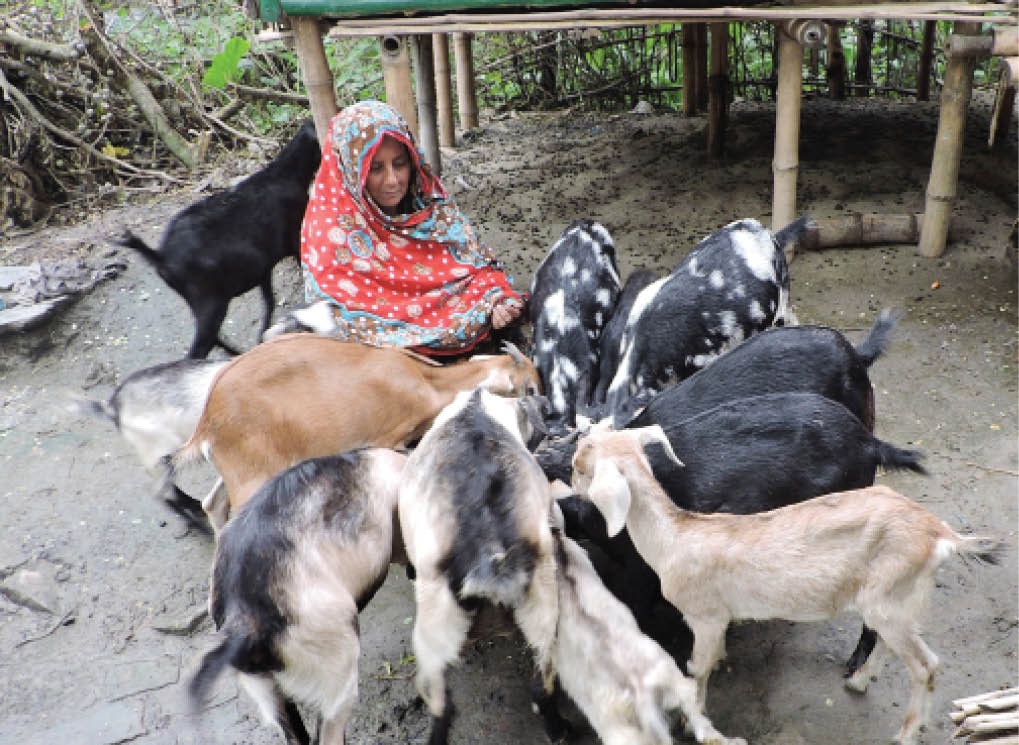Feelers from beneficiaries of the Jigawa Goats Breeding Micro Finance Scheme show that the programme initiated in 2015 is a success story. Governor Mohammad Badaru stated that at a recent town hall meeting in Dutse, the Jigawa State capital.
He noted that the scheme was the most successful micro credit empowerment programme in the state, with 92 per cent retention and 79 per cent repayment level.
Badaru said the objective of the scheme was to diversify the economy and reduce poverty among women.
“Our state has one of the highest level of poverty especially amongst women and this is something we must stop.
“The easiest and most effective way to alleviate poverty is through the goats multiplication programme which we borrowed from Bostwana and South Africa, where millions of women were removed out of poverty,” the governor said.
Available records show that through the programme, the state has so far empowered over 8,428 rural women with 25,284 goats.
Testimonies from the beneficiaries indicated that through the scheme, women were “largely removed from poverty and their living conditions enhanced.”
Aisha Musa, one of the beneficiaries in Dunari village of Mallammadori Local Government Area, said she realised 27 goats from the three goats given to her.
“What I do now is buying and selling of goats, whenever I sell, I buy small ones to replace.
“Through this scheme, I can comfortably buy clothes, food and other basic needs for myself and my children,” she said.
Another beneficiary, Sadiya Madu, said through the scheme, she performed her first Eid-el-Kabir sacrifice, an important religious obligation in Islam.
“I sacrificed one of my goats in 2018 Sallah; before then, my husband only slaughtered chicken during Sallah because of financial problems.
“That is why I remain grateful to this government for supporting us with these goats,” she said.
A visually impaired woman in Mallammadori town, Yagana Mohammad, said she was left with nine goats after she gave out three of the 12 goats she had to another women as required.
“Out of the nine goats, I have decided to give out one goat to my guide and another one to my grandson as gifts.
“The two of them have been very helpful and nice to me, and that is why I have always prayed to God to give me the opportunity to pay them back,” she said.
Falmata Adamu, a widow in Guri town, said she reared seven goats to complement her farming activities.
She said: “My husband died and left me with a small farm in which I cultivate guinea corn.
“After I lost the entire crop to the 2018 devastating flood, I had only my goats to fall back on.
“Each time I need money, I will just sell one to meet my needs and replace it with a small one,” she said.
Meanwhile, as a result of the success of the scheme, Jigawa government plan to start the exportation of goats.
Alhaji Hamza Muhammad, Badaru’s Special Assistant on Community Service, said the government planned to start exporting goats to Saudi Arabia.
He also said that a committee has been set up to ensure that the goats’ loans are recovered and the output of the multiplication scheme marketed and sold at reasonable prices.
Muhammad said each local government area received 660 goats which were distributed to 220 selected women, including the physically challenged.
The official said each beneficiary received one he-goat and two she-goats, and was expected to pay back with three goats in 18 months, so that other women could benefit.
He said the state chose goats because of the economic value of animals and the simplicity to rear them.
Muhammad said feeding the goats was not a problem to the women who were mostly rural dwellers as grasses were in abundance in their villages.
Alhaji Lai Mohammed, Minister of Information and Culture, who commented on the scheme, said it was a model for other states to copy.
He spoke in November 2017, when he was in Jigawa on an official visit.
He said: “It is a very good initiative because goats produce twice a year, and most goats give birth to two or three kids.
“So, this is a very good initiative and there is a need for other states to copy from Jigawa. (NAN)

 Join Daily Trust WhatsApp Community For Quick Access To News and Happenings Around You.
Join Daily Trust WhatsApp Community For Quick Access To News and Happenings Around You.


